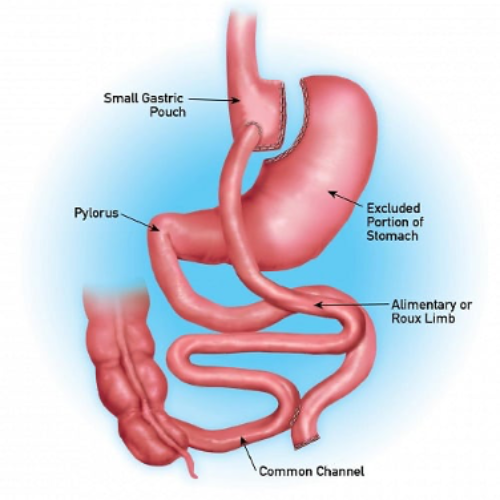Bariatric Surgery
Nearly 70% of Americans are overweight or have obesity. Our bariatric surgery team offers the most advanced surgery options in the Big Bend region to help you lose weight.
Bariatric Surgery is the most effective weight loss option for long-term success. At Tallahassee Memorial, we offer a range of bariatric surgery options as part of an overall treatment plan for obesity.
Why Choose TMH for Bariatric Surgery?
It can be difficult deciding where to have bariatric surgery. While others may promise a quick turnaround, it’s important to consider your long-term goals with surgery. AT TMH, we’ll help you determine those goals and accomplish them through our comprehensive approach to weight loss. We are a nationally accredited center of excellence, here to help you along the way to becoming the best version of yourself. We offer:
✔️ Minimally invasive approach utilizing the latest technology
✔️ MBSAQIP accreditation from the American Society of Metabolic and Bariatric Surgery
✔️ Fellowship-trained bariatric surgeons
✔️ An entire, comprehensive team devoted to your long-term success
✔️ Option for self-pay, if surgery is not covered by insurance
✔️ Support groups

Reclaim Your Health with Long-Term Success
Have any questions about the surgery process? Our team will reach out to you and answer your questions.
Request a Consult
Free Bariatric Surgery Webinar
Learn about your weight loss treatment options before making an appointment.
Register Now
Start Your Journey
Learn the basics about weight loss surgery from Joey Jarrard, MD, the Director of the Bariatric Program.
Watch Our Video Guide Now
Self-Pay Options Available
We offer transparent self-pay options for bariatric surgery. Learn what’s included, pricing details, and next steps.
Request Self-Pay InformationOur Patients Have Found Happiness and You Can Too
Nationally Accredited Center
Since 2021, Tallahassee Memorial has been accredited by the American Society for Metabolic and Bariatric Surgery for providing the highest level of care with outcomes that meet or exceed national standards. We’re also home to the region’s only fellowship-trained bariatric surgeons, Joey Jarrard, MD, FAMBS, FACS and James Parker, MD.
To become accredited, a facility undergoes a rigorous process of evaluations to ensure their level of quality across safety, training, follow-up, and surgical volume standards. This commitment to patient safety, surgical excellence and continuous improvement means better results for our patients.
Setting You Up for Success
Support before and after surgery is important for your success. That’s why at TMH, our team follows you along in every step of your journey to ensure long-term success. From our medical team, dietitians and behavioral health professionals to support groups, we've got all the people and tools in place to help you achieve success.
Do You Qualify for Bariatric Surgery?
While BMI is not a perfect indicator of obesity, it can help determine if you would qualify for surgery.
BMI CalculatorInside Our Program
Your Questions Answered
Watch one of our previous bariatric surgery webinars with Physician Assistant Greg Laffitte and one of our bariatric surgeons!










